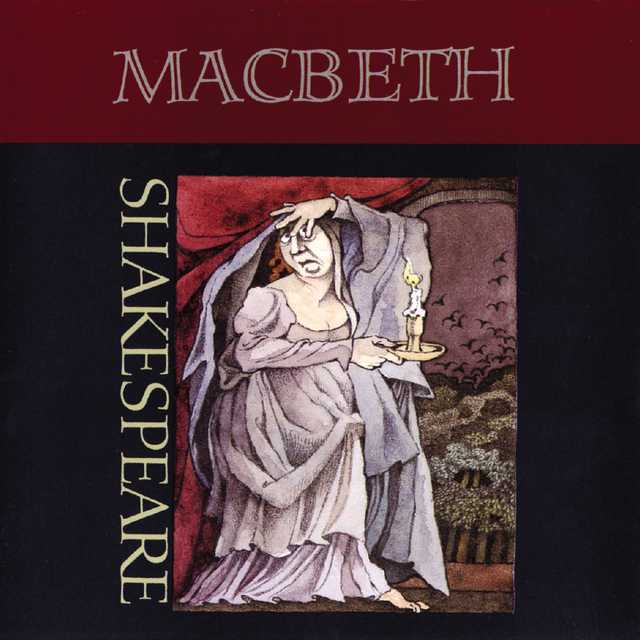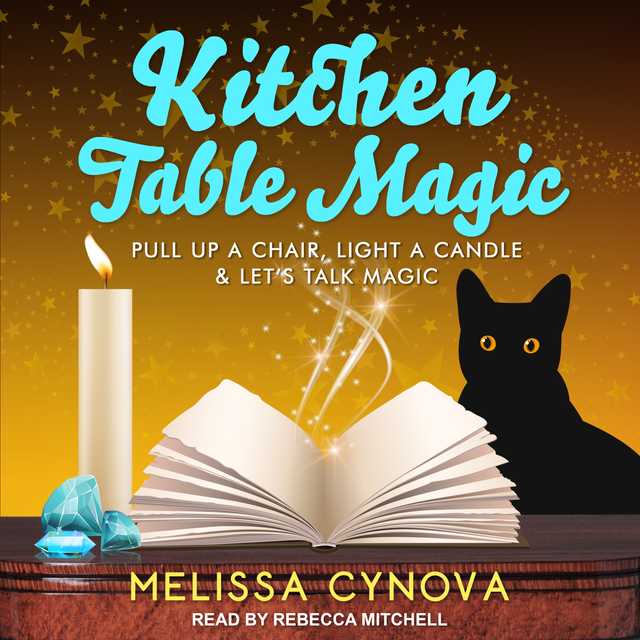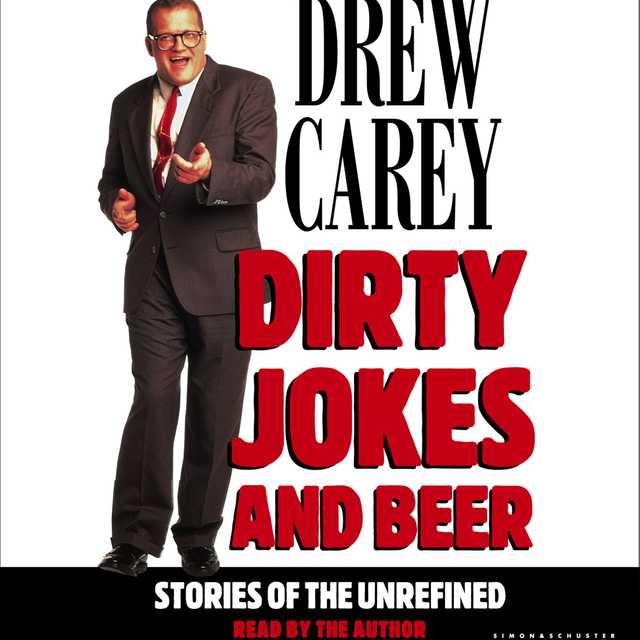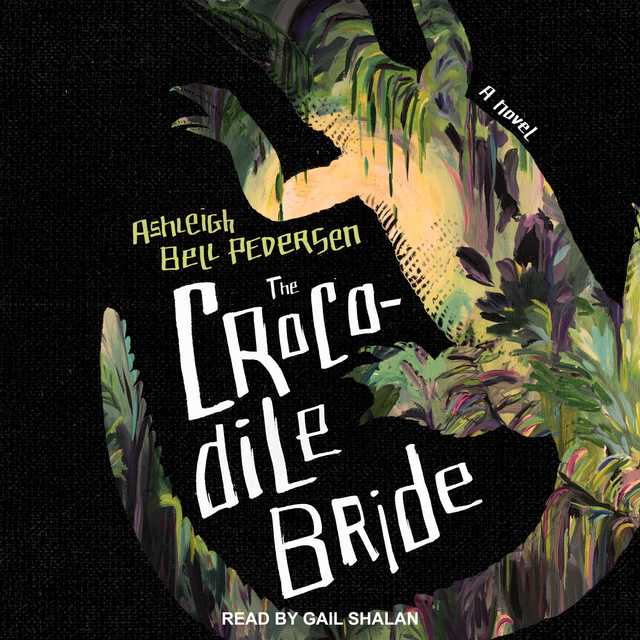Macbeth Audiobook Narrator
Anthony Quayle is the narrator of Macbeth audiobook that was written by William Shakespeare
About the Author(s) of Macbeth
William Shakespeare is the author of Macbeth
More From the Same
- Author : William Shakespeare
- Seven Classic Plays
- The Taming of the Shrew
- All’s Well That Ends Well
- Hamlet
- The Tempest
- Publisher : Caedmon
- Dubliners
- Julius Caesar
- The Two Gentlemen of Verona
- The Tempest
- Measure for Measure
Macbeth Full Details
| Narrator | Anthony Quayle |
| Length | 2 hours 10 minutes |
| Author | William Shakespeare |
| Category | |
| Publisher | Caedmon |
| Release date | December 27, 2003 |
| ISBN | 9780060743260 |
Subjects
The publisher of the Macbeth is Caedmon. includes the following subjects: The BISAC Subject Code is Drama, Shakespeare
Additional info
The publisher of the Macbeth is Caedmon. The imprint is Caedmon. It is supplied by Caedmon. The ISBN-13 is 9780060743260.
Global Availability
This book is only available in the United States.
Goodreads Reviews
David
May 18, 2010
Don't you kind of hate how we've entered the decadent phase of Goodreads wherein perhaps fifty percent (or more) of the reviews written by non-teenagers and non-romancers are now naked and unabashed in their variously effective attempts at being arch, wry, meta, parodic, confessional, and/or snarky? Don't you kind of pine (secretly, in the marrow of your gut's merry druthers) for the good ol' days of Goodreads (known then as GodFearingGoodlyReading.com) when all reviews were uniformly plainspoken, merely utilitarian, unpretentious, and -- above all else -- dull, dull, dull? Don't you kind of hate when people say 'don't you think this way or feel that way' in an effort to goad you both psychologically and grammatically into agreeing with them?In the words of ABBA: I do, I do, I do(, I do, I do).Well, because the interwebs is a world in which the past stands shoulder-to-shoulder with the present (and with fetish porn), we can revisit the past in its inviolable presentness any time we wish. Or at least until this website finally tanks.Consider (won't you?) Matt Nieberle's review of Macbeth in its entirety. I have bound it with a heavy rope and dragged it here for your perusal. (Please understand that many a sic are implied in the following reviews.)its really complicated and stupid!why cant we be reading like Romeo and Juliet?!?!at least that book is good!There you have it. Refreshingly, not a review written in one of the witch's voices or alluding to Hillary and Bill Clinton or discussing the reviewer's first period. Just a primal yell unleashed into the dark wilderness of the cosmos. Yes, Mr. Nieberle is (probably) a teenager, but I admire his ability to strongarm the temptation to be clever or ironic. (Don't you?) He speaks the native language of the idk generation with an economy and a clarity that renders his convictions all the more emphatic. Here's MICHAEL's review of the same play. You may 'know' MICHAEL; he is the 'Problems Architect' here at Goodreads. (A problematic title itself in that it implies that he designs problems... which might be the case, for all I know.)This book shouldn't be required reading... reading plays that you don't want to read is awful.Reading a play kinda sucks to begin with, if it was meant to be read, then it would be a novel, not a play. On top of that the teach had us students read the play aloud (on person for each character for a couple pages). None of us had read the play before. None of us wanted to read it (I made the mistake of taking the 'easy' english class for 6 years). The teacher picked students that looked like they weren't paying attention. All of this compounded to make me pretty much hate reading classics for something like 10 years (granted macbeth alone wasn't the problem).I also hate iambic pentameter.Pure activism there. STOP the mandatory reading of plays. It's wrong, morally and academically. Plus it can really fuck up your GPA. There's no wasteful extravagance in this editorial... no fanfare, no fireworks, no linked photos of half-naked, oiled-up, big-bosomed starlets, no invented dialogues between the author and the review-writer. It's simple and memorable. Being required to read plays is wrong, and if you require anyone, under duress, to read a play then you have sinned and are going to hell, if you believe in hell. If not, you're going to the DMV.I am also tired of all you smug spelling snobs. You damnable fascists with your new-fangled dictionaries and your fancy-schmancy spell check. Sometimes the passionate immediacy of a message overcomes its spelling limitations. Also, in this age when we are taught to respect each other's differences, it seems offensively egocentric and mean-spirited to expect others to kowtow to your petty linguistic rules. Artistic expression will free itself no matter how you try to shackle it.That's your cue, Aubrey.In my personal opinion, the play Macbeth was the worste peice ever written by Shakespeare, and this is saying quite a bit considering i also read his Romeo and Juliet. Ontop of it's already unbelievable plot, unrealistic characters and absolutly discusting set of morals, Shakespeare openly portrays Lady Macbeth as the true vilian in the play. Considering she is mearly the voice in the back round and Macbeth himself is truely committing the hideous crimes, including murder and fraud, I do not see why it is so easy to assume that Macbeth would be willing to do good instead of evil if only his wife were more possitive. I believe that this play is uterally unrealistic.But the following is by far the ne plus ultra of classic book reviewing. While succinct and without any distracting inclination to coyness or cuteness, Jo's review alludes to a bitterness so profound that it is inexpressible. One imagines a few Signet Classic Editions hacked to bits with pruning shears in Jo's vicinity.I hate this play. So much so that I can't even give you any analogies or similes as to how much I despise it. An incrementally snarkier type might have said something like... 'I hate this play like a simile I can't come up with.' Not Jo. She speaks a raw, undecorated truth unfit for figurative language. And there's certainly nothing wrong with that. Once in a great while, when you get neck-deep in dandified pomo hijinks, it's a nice wallow in the hog pen you're itchin' for. Thank you, Jo. I love you and your futile grasping at similes that can't approach the bilious hatred in your heart. You are mine, and I am yours. Figuratively speaking, of course. And now here's my review:Macbeth by William Shakespeare is the greatest literary work in the English language, and anyone who disagrees is an asshole and a dumbhead.
Ahmad
August 03, 2021
The Tragedy of Macbeth, William Shakespeare Macbeth (The Tragedy of Macbeth) is a tragedy by William Shakespeare; it is thought to have been first performed in 1606. A brave Scottish general named Macbeth receives a prophecy from a trio of witches that one day he will become King of Scotland. Consumed by ambition and spurred to action by his wife, Macbeth murders King Duncan and takes the Scottish throne for himself. He is then wracked with guilt and paranoia. Forced to commit more and more murders to protect himself from enmity and suspicion, he soon becomes a tyrannical ruler. The bloodbath and consequent civil war swiftly take Macbeth and Lady Macbeth into the realms of madness and death. ...عنوانهای چاپ شده در ایران: «مکبث»؛ «تراژدی مکبث»؛ نویسنده: ویلیام شکسپیر؛ تاریخ نخستین خوانش: در سال 1972میلادیعنوان: مکبث؛ نویسنده: ویلیام شکسپیر؛ مترجم: عبدالرحیم احمدی؛ تهران، اندیشه، چاپ دوم 1346؛ در 192ص؛ با مقدمه موریس مترلینگ؛ چاپ پنجم 1357؛ در 152ص؛ موضوع نمایشنامه های نویسندگان سده های 16م و 17م بریتانیا- سده 17معنوان: تراژدی مکبث؛ نویسنده: ویلیام شکسپیر؛ مترجم: فرنگیس شادمان (نمازی)؛ تهران، بنگاه ترجمه و نشر، 1340، چاپ دوم 1351؛ با متن انگلیسی در 101ص؛ زیر نظر احسان یارشاطر؛ چاپ دیگر تهران، علمی فرهنگی؛ 1365، در 89ص؛ چاپ بعدی 1370، در 152ص؛ چاپ ششم علمی فرهنگی، 1374 در 101ص؛ چاپ هفتم 1375؛ شابک 9644450175؛ چاپ هشتم 1378؛ چاپ دهم 1381؛ چاپ یازدهم 1382؛ چاپ دوازدهم سال1384؛ چاپ سیزدهم 1388؛ چاپ چهاردهم 1391؛ شابک 9789644450174؛ مترجم: خسرو شایسته؛ تهران، سپیده، 1364، در 96ص؛مترجم: داریوش آشوری؛ تهران، آگاه، 1371، در 100ص؛ چاپ دوم 1373؛مترجم: محمدصادق شریعتی؛ تهران، گویش نوه، 1393، در 120ص؛ شابک 9786006382487؛مترجم: علی مجتهدزاده؛ تهران، نگارش الکترونیک، 1395، در 122ص؛ شابک 9786008299172؛مترجم: حمید الیاسی؛ تهران، روشنگران، 1395، در 279ص؛ شابک 9789641941194؛مترجم: بیتا حسینی؛ تهران، اسحاق، 1395، در 64ص؛ شابک 9786008175230؛تراژدی (در تراژدی همیشه سرنوشت قهرمان و دیگران، از رویدادهای دلپسند آغاز، و سپس به فاجعه پایان مییابند) «مکبث» را شاهکار «شکسپیر» خوانده اند، به گمانم همه ی آثار این نامدار، بی اغراق به چنین صفتی آراسته هستند؛ این نمایشنامه، شرح زندگی سردار دلیری «مکبث» نام است، وسوسه ها او را برمیانگیزند، تا همسر خود را، که مهمان او هست، بکشد؛ سپس ایشان میمانند و قلم پرفروغ استاد تراژدی، تا سیاهی تباهی روح انسانی را به نمایش درآورند؛ این نمایشنامه کوتاهترین تراژدی، و یکی از محبوبترین آثار ایشان است، که بنا به باور بسیاری، بین سالهای 1599میلادی تا سال 1606میلادی نگاشته شده است؛ اساس «تراژدی مکبث» رویدادهای تاریخی «اسکاتلند» است، اما «شکسپیر» موافق ذوق و طبع هنری و ادبی خویش، تغییراتی در آنها داده، و رخداد جنگها را، به هم آمیخته است؛ این نمایشنامه ی جاویدان، ماجرای: آسیب جسمی، آثار منفی روحی ـ روانی، و جاه طلبی سیاسی کسانی ست، که به دنبال نفس قدرت هستندنمایشنامه نخستین بار که احتمالاً خود «شکسپیر» نیز در آن به ایفای نقش پرداخته؛ ماه «آوریل یا آپریل» سال 1611میلادی بوده، که بنا به شرح مکتوب «سیمون فورمن (منجم، طبیب و گیاهشناس انگلیسی دربار ملکه الیزابت نخست)» در تئاتر جهان، واقع در «لندن »اجرا شده است؛ نخستین نمونه ی چاپی از این نمایشنامه، در سال 1623میلادی در کتاب «مجموعه آثار نمایشنامه ای کمدی، تاریخی، و تراژدیهای شکسپیر»، در زمان پادشاهی «جیمز یکم»، در «انگلستان» به چاپ رسید، و انتشار یافت؛ «شاه جیمز اول» را از حامیان آثار، و نوشته های «شکسپیر» دانسته اند؛ و بعضی از آثار نمایشنامه ای «شکسپیر» در زمان ایشان نگاشته شده اند؛ اما بیشتر آثار در دوره ی سلطنت «الیزابت اول»، تدوین و اجرا شده اند؛ همه ی نمایشنامه های «شکسپیر» ترکیبی از نظم و نثر هستند؛نمایشنامه «مکبث» به اسثتنای چند بخش کوتاه، تقریبا به طور کامل منظوم، یعنی به شعر است؛ پس از گذشت سده ها، هنوز شخصیتهای اصلی این نمایشنامه نظیر «مکبث» و «بانو مکبث»، جذاب و در عین حال دستمایه ی ساخت آثار اقتباسی سینمایی و تلویزیونی، تئاتر و اپرا، و اقتباس ادبی به شکل رمان، و کمیک بوک نیز بوده است تراژدی «مکبث» شرح زندگی پرحادثه ی سرداری دلیر و لایق به نام «مکبث» است؛ «دانکن»، پادشاه شریف و مهربان «اسکاتلند»، او را از میان هواخواهان خود برمیکشد، و به وی لقب و منصب میبخشد، اما «مکبث» بر اثر تلقین جادوگران، و وسوسه ی نفس، و به اغوای زن جاه طلب خویش در شبی که پادشاه میهمان ایشان هستند، او را در خواب به قتل میرساند، و با این قتل، جهنمی برای خویش به وجود میآورد؛ «مکبث» از آن پس گرفتار عذاب وجدان میشود، چندان که هر آهنگی و هر در کوفتنی او را هراسان میکند؛ سردار «مکبث»، و سردار «بانکو»، پس از شکست سپاهیان «نروژی»، و در راه بازگشت به «اسکاتلند»، با جادوگرانی روبرو میشوند، که به آنها از آینده خبر میدهند، و در حالی که «امیر کادور» زنده است، او را «سالار کادور» میخوانند، و به او میگویند: شاه خواهد شد؛ ساحران در پاسخ پرسش «بانکو»، میگویند: فرزندان تو به پادشاهی میرسند؛ دو سردار غرق در شگفتی، از ساحران جدا میشوند؛ «مکبث» در راه بازگشت، توسط پیک «دانکن» پادشاه «اسکاتلند»، باخبر میشود که «امیر کادور» به جرم بی کفایتی به اعدام محکوم شده، و ولایت «کادور» نصیب او شده است، و این پیام تکان دهنده، درستی پیشگویی ساحران را بر او ثابت میکند؛ «دانکن امیر کادور» برای تقدیر از سردار پیروز (مکبث)، به قصر او وارد میشود، تا شب را نیز در کاخ او سر کند؛ غافل از آنکه «مکبث»، با وسوسه ی همسرش «لیدی مکبث»، فرجامین شب زندگی او را تدارک دیده، «دانکن» در خوابگاه به قتل میرسد، و دستان «مکبث» و روان «لیدی مکبث»، به خون ولی نعمتشان، که به فروتنی و تواضع مشهور بوده، آلوده میشود؛ اما این پایان ماجرا نیست، و «مکبث» برای آنکه پیشگویی ساحران محقق نشود، قاتلانی را به کشتن فرزندان «بانکو» میگمارد؛ «بانکو» که بو برده، فرزندش «فلیانس» ممکن است کشته شود، او را فراری میدهد، ولی خود کشته میشود؛ «مالکوم» فرزند دانکن نیز میگریزد، تا مبادا به قتل برسد، و این بر خشم و خونخواری «مکبث» میافزاید؛ هدف بعدی او «مکداف سالار فایف» است، که او نیز از «اسکاتلند» بگریخته، و به جمع مخالفان «مکبث» پیوسته است؛ اما «مکبث» کاخ «مکداف» را به آتش میکشد، و زن و فرزندان سالار «فایف» را، با قساوت به دیار عدم روانه میکند؛ اکنون «مکبث» و «لیدی مکبث» را چاپلوسان و بزدلان، دوره کرده اند، و هر آنکس که اندکی شجاعت و غیرت دارد، دو راه پیش روی خویش «گریختن از اسکاتلند»، یا «پذیرش مرگ» را داردجوّ هولناکی بر «اسکاتلند» حاکم شده، و حتی مردان بزرگ نیز غالباً از ترس جان، به جنگل پناه میبرند؛ «لیدی مکبث» که در آرزوی تاج و تخت، مبتلای جنون شده، دستان آلوده اش را میشوید، تا خون «دانکن» و دیگران را از آن بزداید؛ اما هر بار بیش از پیش گرفتار عذاب وجدان میگردد، و در سرسرای کاخ راه میرود، و افشای راز میکند، و ندیمه و دیگران بر خود میلرزند، که چگونه «بانو مکبث» و «مکبث»، دستشان را به خون دیگران آلوده کرده اند؛ پس نه «مکبث» و نه همسرش شادمان نیستند، و از این روی «مکبث» به ساحران متوسل میشود، تا از آنها بشنود، که آینده چگونه خواهد بود؛ ساحران بار دوم دیدار نیز، او را امیدوار میکنند، که حکومتش و جانش پابرجا خواهد بود، و مادام که جنگل «بیرنام» به حرکت درنیاید، و کسی که او را مادرش نزاده، آنجا نباشد، کس نمیتواند او را به قتل برساند، و او نباید نگران باشد؛ اما در این بین مخالفان «مکبث» به سرکردگی «مکداف» دردمند و «مالکوم»، درصدد حمله به «اسکاتلند» هستند، و «لیدی مکبث» نیز در اوج جنون به سر میبرد، «لیدی» سرانجام جان میسپارد؛ سربازان تحت امر فرماندهان مخالف «مکبث»، درختان جنگل «بیرنام» را قطع کرده، و با استتار خود در پس آنها، به سوی مقر حکومت «مکبث» حمله میبرند، و او حرکت جنگل «بیرنام» را، زنگ خطر تحقق پیشگویی ساحران، به شمار میآورد؛ اما هنوز امیدوار است که زنده بماند، لیکن هنگامی که از زبان «مکداف» میشنود که او از مادر زاده نشده، بلکه با جراحی از شکم مادرش وی را به دنیا آورده اند (سزارین)، مرگ را پیش روی خود میبیند، و چنین نیز میشود: «مکداف»، «مکبث» را میکشد، و سپاهیان وارد کاخ میشوند، و «مالکوم» را به پادشاهی «اسکاتلند» برمیگزینندتاریخ بهنگام رسانی 01/06/1399هجری خورشیدی؛ 12/05/1400هجری خورشیدی؛ ا. شربیانی
Bill
April 25, 2019
Macbeth is Shakespeare's darkest play not only because of the restricted palette of its images--shades of black varied with bright red blood--but also because, in the play's world of warfare and witchcraft, its hero is half-damned from the start. Inured to violence, prone to superstition, Macbeth struggles with the hags' predictions in the depth of his soul. But his wife, fiercely ambitious, never struggles. When he is haunted by his imagination, she is steadfast: preparing everything, looking after the details, urging him on. It is only afterward, when he is thoroughly damned, coldly vicious, that she finds she cannot wash Duncan's blood off from her hands.Among other things, this play is the portrait of a good marriage. If, that is, a good marriage can be made in hell.
oyshik
January 29, 2021
Macbeth by William ShakespeareThe book presents the story of a nobleman who entered the path of evil. Initially, he was still undecided. Nevertheless decided to murder the king. And thus, he fell into a vicious circle of crime, from which it is impossible to get out because "blood will have blood." Just because of the archaism writing, I had to give this book some time. Otherwise found the story really astounding. Life ... is a taleTold by an idiot, full of sound and fury,Signifying nothing. Fair is foul, and foul is fair.
s.penkevich
January 29, 2022
This play always holds a place in my heart and the top spot of most embarassing moments in my life. In fifth grade we did a full production of this as our class play and I was honored to be cast as Macbeth (I went to a weird school). I still have many of my monologues memorized. Because memory loves embarrasing moments. Anyways, after months of rehersal the big day comes and they invite every 4th and 5th grade class to come watch along with all our parents and grandparents who wanted to be proud of me for a moment. When we get to the murder scene, the fake blood bottle exploded all over my hands and costume like I'd just murdered a whole army and not one little king. So picture very sensitive, 9 year old me in an oversized medieval cloak my mom made with blood just dripping off my hands like a waterfall as you can also see an equal amount of blood draining from my face because I am very much overthinking it. This play is getting dark and it's all going dark for me because somewhere mid-monolouge I both passed out and threw up allllllll over my fancy cloak (choose-your-own-adventure which came first).I'm sure other things happened that year but this pretty much occupies my entire headspace for 5th grade. Oh, and this play rules.
jessica
October 31, 2019
highlights of this play include, but are not limited to:- the witches! they are the original halloween qweens. they are serving some major spooky realness. also, they went and haunted a woman just because she wouldnt share her hazelnuts. that is the exact level of petty that i aspire to be. - lady macbeth. honestly, everything she says (especially to her husband) is so savage. she doesnt want to be a queen, she wants to be the queen. and her first scene is iconic. “unsex me.” yaaassss. ditch those bonds of femininity. be the murderous biotch we all want you to be. - how someone born by a c-section is the key factor for determining the outcome of pretty much everything. soooo random. lol. - that the english army thought they could hide behind tree branches and sneak up on macbeth for a surprise attack. - the fact the macbeth believed it and actually thought it was the forest.- “what, you egg!?” is now my go-to insult.↠ 4.5 stars
Jason
November 30, 2012
There are two reasons to love this play.The first reason is Lady Macbeth. Man, that girl has got it goin’ on. Have you ever found yourself in the running for, say, a new position that’s opened up at your company, a position for which you—along with one of your equally worthy colleagues, perhaps—might qualify? You may not have given much thought to your professional advancement before, but now that this promotion has been dangled before you, it has ignited a spark of ambitious desire. Imagine the possibilities! And it is just within your grasp...if only there were a way to edge out the competition. Maybe you could sabotage a project he’s working on. Or you could discredit him by rumoring of his incompetence. Better yet, you could off him in the parking garage. But each of these strategies requires a certain level of gumption to execute, a level not everyone possesses. This is where it pays to be married to Lady Macbeth. All she would need is a mere mention of this potential uptick in your career path and she’s off and running, drafting the schematics, telling you where to stand (just outside the stairwell, across from his car, within easy reach of the tire iron lying in the corner that can be used while he’s distractedly sifting through his keys). Why doesn’t she do it herself, you ask? Well, why should she? It’s not her job. Her job is to support you, to boost your confidence, to supply that additional gumption. You’re the one who has to do the dirty work.Lady Macbeth is an amazing character. I’ve seen reviews on here that criticize her for being the morally reprehensible of the two protagonists, planting ideas in her husband’s head that he would not have otherwise formed, encouraging him toward evil deeds that he would not have otherwise committed. I disagree. She may have made a mistake helping to plan Duncan’s murder, but if anything Lady Macbeth is the one with her moral faculties still intact—she exhibits a profound sense of remorse at the end of the play that Macbeth recognizes as nothing short of an ailment for which to seek a cure. While Macbeth is off slaughtering anyone who might threaten his regal standing, his wife is at home rubbing the fuck out of her hands until the blisters explode and she suffocates in a pool of her own pus.The second reason to love this play is the eloquence of the language. There are passages in this play that describe human emotion so briefly yet so profoundly it triggers goosebumps. These are some of my favorites: On expressing one’s grief: What, man! ne’er pull your hat upon your brows;Give sorrow words: the grief that does not speakWhispers the o’er-fraught heart and bids it break. On not having enough gumption: Yet do I fear thy nature;It is too full o’ the milk of human kindnessTo catch the nearest way: thou wouldst be great;Art not without ambition, but withoutThe illness should attend it. On contemplating ambition’s worth: Nought’s had, all’s spent,Where our desire is got without content:’Tis safer to be that which we destroyThan by destruction dwell in doubtful joy. On being past the point of no return: All causes shall give way: I am in bloodStepp’d in so far that, should I wade no more,Returning were as tedious as go o’er. On the futility of life: Life’s but a walking shadow, a poor playerThat struts and frets his hour upon the stageAnd then is heard no more: it is a taleTold by an idiot, full of sound and fury,Signifying nothing. On the finality of death: There’s nothing serious in mortality:All is but toys: renown and grace is dead;The wine of life is drawn, and the mere leesIs left this vault to brag of. I said in the comments section of my Hamlet review that I was preferring Hamlet to Macbeth. While I think I prefer the character of Hamlet to that of Macbeth, I no longer stand by that statement in terms of the play itself. Macbeth really is a masterpiece.
emma
January 19, 2022
this is probably my favorite shakespeare. witches. ladies doing murder. prophecies. what's not to love? beyond that there's the witty writing and clever wordplay and sex puns we all know and love from billy shakes.this passes that with flying colors. i also am super glad i read this for a class, because even though i love reading shakespeare of my own accord because it corroborates the fact that i am an Intellectual and an Academic and a Quiet Genius, there's just something about analyzing it with 18 other people (5 of whom actually read it and care) that hits different.maybe i'll reread this knowing my presumably brilliant annotations await.this is part of a project i'm doing where i put myself into the twisted mind of 17 year old me and review books i read then. it's a blast, both of the "from the past" and "so fun" variety.
Paul
February 24, 2018
Act One. Scene Minus One.A greasy spoon café on a Blasted Heath. Three Witches at a Table.First Witch : It’s not warm, though, is it?Second Witch : Cold it be and warm it bain’t –This café could do with a coat of paintThird Witch : I wish you wouldn’t do that all the time.Second Witch : (To Waiter) Excuse me – what’s the soup of the day?Waiter: Scotch broth.Second Witch : What’s in it?Waiter : Toad, that under cold stoneDays and nights has thirty-oneSwelter'd venom sleeping got,Fillet of a fenny snake,Eye of newt and toe of frog,Wool of bat and tongue of dog,Adder's fork and blind-worm's sting,Lizard's leg and owlet's wing,Scale of dragon, tooth of wolf,Witches' mummy, maw and gulfOf the ravin'd salt-sea shark,Root of hemlock digg'd i' the dark,Gall of goat, and slips of yewSilver'd in the moon's eclipse,Nose of Turk and Tartar's lips,Finger of birth-strangled babeDitch-deliver'd by a drab.Second Witch : I’ll just have the salad then.First Witch : Now listen – we know what we’re going to say when we meet Macbeth and Banquo tomorrow but what if we run in to King Duncan? Third Witch : Okay, what about this – King thou be but not for longAlas, O Dunc, it’s all gone wrongFirst Witch : Wait – how about – You may be king but listen mateWe are the hags who know your fateIf you knew what we know Macbeth you’d hateAnd by the way you should lose some weightSecond Witch : Yes, good! I hear they call him Dunkin’ Duncan at the palace.Third Witch : What about if we run into Lady Macbeth?First Witch : Well, she won’t be wandering round the battlefield will she? That’s not logical.Third Witch : But sister weird and sister dearThis is a play by W ShakespeareGreat poet, philosopher and teacherLogic ain’t the overriding featureSecond Witch : I’m going to do this one tomorrow – Hover through fog and filthy hair-Third Witch : Hair? You should change that to air.First Witch : The night draws on so must we runBut there’s time for some tea and an iced* bunSecond Witch : Macbeth hath not the greatest witThird Witch : But let’s agree he is quite fit.Exeunt*the stress is on the second syllable
Sean Barrs
August 30, 2016
Be bloody, bold, and resolute. Laugh to scornThe power of man, for none of woman bornShall harm Macbeth.Poor old Macbeth. You were doomed from the very first act. Your mistake was believing in hearsay, prophecy and half-truths. You were an excellent Thane, noble and strong. But you were never meant to be King. You should never have told your wife about the witches, that way the fires of your ambition would never have been fanned. You only committed in halves to the witches advice. You needed to go the full way or not at all. For you are bloody. Your butcher’s work in King Duncan’s tent saw to that. Your soldier’s work on the battlefield also saw to that. You weren’t afraid to get your hands dirty and in this you were bold and daring, but none would ever call one such as you resolute. Your conscience got the better of you, it made you weak and vulnerable, and because of this you failed. Your rule failed. Your sword arm failed. You needed to go the full way or not at all. Desperation, paranoia and butchery are what followed your indecisiveness. You killed those that could have been loyal; you killed those that could have remained friends. And it was your doom. You created your own haunting, your own end. You listened to the advice of the witches when you should have followed your own path, your own mind. Their words killed you. Your faith in them killed you. Macduff was defeated at your feet, but your fear conquered you. Their words unmanned you. Macbeth! Macbeth! Macbeth! Beware Macduff.Beware the thane of Fife. Dismiss me. Enough.
Most Popular Audiobooks
Frequently asked questions
Listening to audiobooks not only easy, it is also very convenient. You can listen to audiobooks on almost every device. From your laptop to your smart phone or even a smart speaker like Apple HomePod or even Alexa. Here’s how you can get started listening to audiobooks.
- 1. Download your favorite audiobook app such as Speechify.
- 2. Sign up for an account.
- 3. Browse the library for the best audiobooks and select the first one for free
- 4. Download the audiobook file to your device
- 5. Open the Speechify audiobook app and select the audiobook you want to listen to.
- 6. Adjust the playback speed and other settings to your preference.
- 7. Press play and enjoy!
While you can listen to the bestsellers on almost any device, and preferences may vary, generally smart phones are offer the most convenience factor. You could be working out, grocery shopping, or even watching your dog in the dog park on a Saturday morning.
However, most audiobook apps work across multiple devices so you can pick up that riveting new Stephen King book you started at the dog park, back on your laptop when you get back home.
Speechify is one of the best apps for audiobooks. The pricing structure is the most competitive in the market and the app is easy to use. It features the best sellers and award winning authors. Listen to your favorite books or discover new ones and listen to real voice actors read to you. Getting started is easy, the first book is free.
Research showcasing the brain health benefits of reading on a regular basis is wide-ranging and undeniable. However, research comparing the benefits of reading vs listening is much more sparse. According to professor of psychology and author Dr. Kristen Willeumier, though, there is good reason to believe that the reading experience provided by audiobooks offers many of the same brain benefits as reading a physical book.
Audiobooks are recordings of books that are read aloud by a professional voice actor. The recordings are typically available for purchase and download in digital formats such as MP3, WMA, or AAC. They can also be streamed from online services like Speechify, Audible, AppleBooks, or Spotify.
You simply download the app onto your smart phone, create your account, and in Speechify, you can choose your first book, from our vast library of best-sellers and classics, to read for free.
Audiobooks, like real books can add up over time. Here’s where you can listen to audiobooks for free. Speechify let’s you read your first best seller for free. Apart from that, we have a vast selection of free audiobooks that you can enjoy. Get the same rich experience no matter if the book was free or not.
It depends. Yes, there are free audiobooks and paid audiobooks. Speechify offers a blend of both!
It varies. The easiest way depends on a few things. The app and service you use, which device, and platform. Speechify is the easiest way to listen to audiobooks. Downloading the app is quick. It is not a large app and does not eat up space on your iPhone or Android device.
Listening to audiobooks on your smart phone, with Speechify, is the easiest way to listen to audiobooks.






























